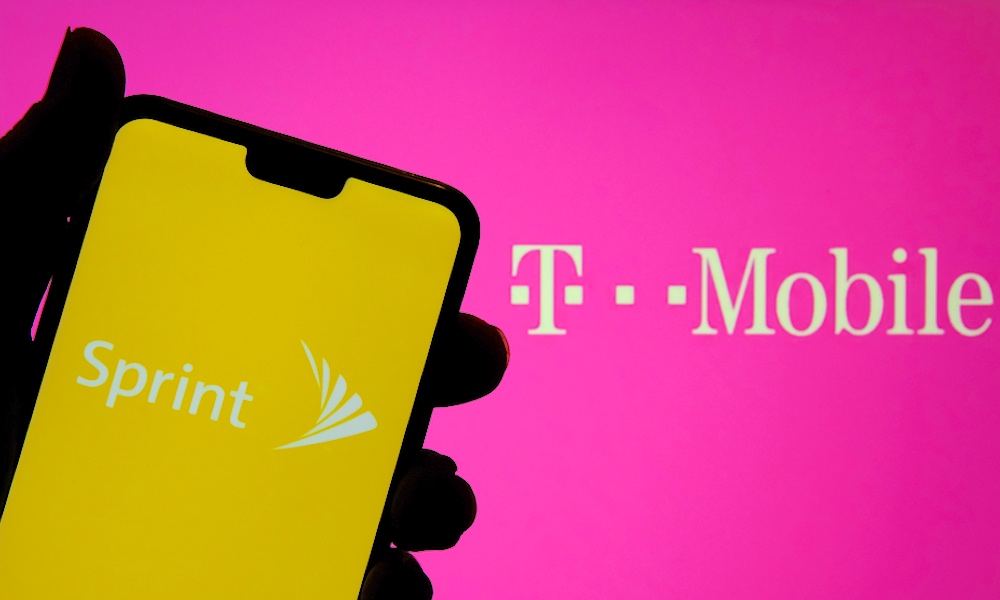California Decides It Won’t Try to Block the T-Mobile-Sprint Merger
 Credit: Ascannio / Shutterstock
Credit: Ascannio / Shutterstock
Toggle Dark Mode
U.S. telecom giants T-Mobile and Sprint have had a pretty rocky road on the way to their final merger, but it looks like the last opposed to the deal have decided to lay down arms, paving the way for the two companies to finally consummate their relationship as The New T-Mobile.
Although both companies began talking about terms for a merger back in 2017, they first had to clear things with the U.S. Federal Communications Commission, which told them to slow down while it took a deeper look at exactly what the proposed merger would mean in terms of the network that both companies would be building, especially as they made plans to roll out new 5G technology across the country.
Then there was the U.S. Department of Justice, which naturally had to look over the deal to make sure that it wouldn’t create antitrust and anticompetitive issues, since the newly-formed company would become the third-largest carrier in the U.S., creating a stronger rival for heavyweights AT&T and Verizon while also removing the fourth competitor. The Justice Department added a few conditions to approving the deal, preventing the new carrier from raising prices for three years after the merger and insisting that they commit to a coast-to-coast 5G network to cover 99 percent of U.S. customers within six years. Both companies also had to sell off their prepaid brands to Dish to help it fill the gap that would be left by Sprint.
Despite the fact that the U.S. government acceded to the merger, however, several U.S. states didn’t quite agree that the merger wouldn’t be harmful to the interests of the consumers in each of their states, and filed a lawsuit last year to block the merger.
Last month, however, a U.S. federal court judge sided with The New T-Mobile, ruling that the deal could go ahead and stating his belief that it would have a more positive impact for consumers by offering a viable third option versus AT&T and Verizon.
While that should have been the end of the matter, however, as with any legal battle, the individual states still could have filed appeals to continued their fight against the merger. In a recent series of settlements, however, it seems that each of the states has gotten whatever it is they really wanted out of the deal and dropped any plans for further litigation.
The Final Surrender
The two leads in the original lawsuit were the attorneys general of California and New York, and it wasn’t long after the judge’s ruling came down that New York State Attorney General Letitia James announced that the office would not appeal the case, and that instead would “work with all the parties to ensure that consumers get the best pricing and service possible, that networks are built out throughout our state, and that good-paying jobs are created here in New York.”
However, the last opponent of the merger, California Attorney General Xavier Becerra, has taken a little bit longer to come to a similar conclusion, announcing this week that he will not be appealing the U.S. federal court decision.
According to The Verge, T-Mobile and Sprint came to a settlement with California that will have The New T-Mobile making low-cost mobile plans available in that state for the next five years and creating around 1,000 new jobs in California while maintaining all of the ones that are already there.
Specifically, The New T-Mobile will not only need to offer a $15 monthly 2GB plan and a $25-per-month 5GB plan, but also bring internet access to 10 million low-income households with a 100GB no-cost high-speed internet service and a free mobile Wi-Fi hotspot device.
As much as the California Attorney General insisted that the fight was over thwarting competition and driving up prices, it seems that in the end the state got what it was probably after in the first place, which Becerra describes as “new jobs and protections for vulnerable consumers, and it extends access to telecom services for our most underserved and rural communities.”
With California the last of the states that could have still appealed to block the merger, it looks like there are no remaining impediments to The New T-Mobile becoming a reality very soon.






